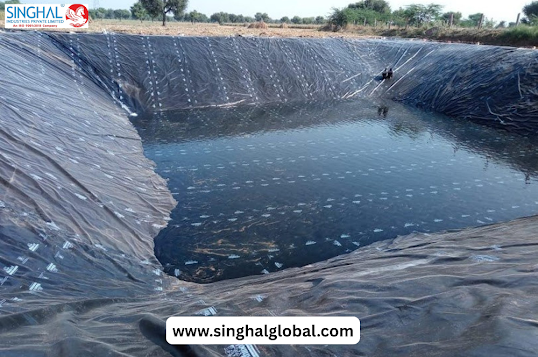Sustainability in a Sack: The Environmental Edge of PP Woven Bags
In an ever more environmentally aware world, each and every industry is examining its footprint, and packaging is no exception. The search of material that provides the best protection and is environmentally responsible has made industry experts reflect on the traditional materials. As they analyze every possible material option, PP woven bags are standing out not simply as a durable workhorse, but as an unexpectedly important part of the sustainability story as they have unique material properties and have the potential to provide a circular life.
One of the most potent denouncements of the environmental sustainability of PP woven bags is their reported reusability. PET has claimed more than once that PP woven bags are made for cycles of use as they are made for use and reused and reused, whereas many of traditional packaging forms like single-use plastic films or paper sacks are meant for single-use. They are designed with a woven structure that also has remarkable tear resistance and puncture resistance, allowing them to be filled, handled, and transported multiple times. This design means that a single PP woven bag is capable of replacing several disposable forms of alternative packaging in its lifecycle; therefore, demand for new raw materials, the energy expenditures tied to infinite production, and transportation costs are all greatly reduced. For industries, reusing PP woven bags can be a significant, if not completely eliminate packaging refuse, decrease operational footprint, and mitigate some of the burden on landfills.
The Material Advantage: Recyclability of Polypropylene
PP woven bags have the green benefits above and beyond their recyclable nature. The recyclability comes from their core material, polypropylene (PP), and in some cases, high-density polyethylene (HDPE) as found in pp HDPE Bags Manufacturer. PP and HDPE are both thermoplastic polymers, meaning they can be melted and remolded into new plastic products. Being a thermoplastic is important for a circular economy to occur where resources are used for as long as possible.
Although the systems to recycle all types of plastic are still being developed in many countries around the world, PP and HDPE are among the more recyclable plastics. We are constantly working together to develop more efficient collection, sorting, and reprocessing technologies for PP and HDPE. Many pp HDPE Bag Manufacturers in India are proactively and sustainably addressing their impact by using recycled content in their new bags – a step which further closes they can be employed within a loop and limit the dependence on virgin materials (fossil fuel-generated).
Resource Efficiency: Manufacturing and Transport
PP woven bags, like most products, are evaluated not only on their functional use but also to assess where and how they are used through their entire life cycle. The initial production of polypropylene is energy-intensive in connection with sustainability. However, with research on-going to reduce energy use and greenhouse gases, the manufacture of PP woven bags has a host of efficiencies from raw material through delivery to account for. Specifically identifying functional benefits of lighter weight woven PP bags as compared to competing flexible packaging materials, manufacturers maintain a lighter bag with all the strength and optimized durability they can. Logistics wise, transporting lighter weight packaging uses less fuel (and less total emissions) when moving products down a road, rail, or across water. This translates to an immediate reduction in fuel use and greenhouse gases at each point in the supply chain. Most bag manufacturers, including the many range of PP Bag Manufacturer in Gujarat specifically, often look for advancement in energy efficient technologies in their buildings and facilities that give As a result, adding a lower carbon footprint to products overall. Yes, product resource efficiencies matter from its raw materials and from its final delivery.
Flexibility in Use: The Waste Reduction Benefits of PP Woven Bags The availability of PP woven bags to many industries enhances their environmental benefits. In agriculture, these bags help protect valuable harvested crops from spoilage and spillage, ultimately reducing food waste. In the construction industry, they hold materials like cement and aggregates and hold them potentially preventing contamination and loss. Specialized laminated bags are used to contain chemicals and fertilizers which helps prevent environmental exposures in the event of leaking. The reliable and resilient packaging offered by linked to PP woven bags supports the reduction of damage to products and less waste throughout the different supply chains.
Conclusion
As the landscape of contemporary sustainable commerce continues to evolve, there are many outstanding examples, such as polypropylene (PP) woven bags, that powerfully demonstrate how to support sustainability and the environment responsibility at the same time. The inherent reuse, as well as recyclability of polypropylene (PP) and high-density polyethylene (HDPE), provide a meaningful opportunity for waste reduction and resource depletion. The industry is moving closer to greener practices, whether we consider the fantastic commitments made by hdpe pp bags manufacturers in India, or the local innovation of a pp bag manufacturer in the state of Gujarat.
Frequently Asked Questions
Q: Can PP woven bags be classed eco-friendly?
A: Yes, even though polypropylene (PP - or HDPE) is a plastic, PP woven bags are generally more eco-friendly than many single-use plastics in large part because of the level of durability and versatility allowing them to be re-used many times (and reduce waste), and not to be overlooked.
Q: As I want to recycle them, will all of the types of PP woven bags be recyclable including laminated bags?
A: The recyclability of PP woven bags is dependent on the collection of local recycling facilities and type of bag structure. While the polymer polypropylene is generally recyclable, laminated bags, multi-layer bags, and differences in materials can potentially complicate the standard recycling stream.
Q: Who is the largest manufacturer of PP Woven Bags ?
A: Singhal Global Private Limited is a highly prominent and well-regarded manufacturer of PP woven bags, known for its extensive production capabilities and diverse product range catering to global markets.

.png)

Comments
Post a Comment